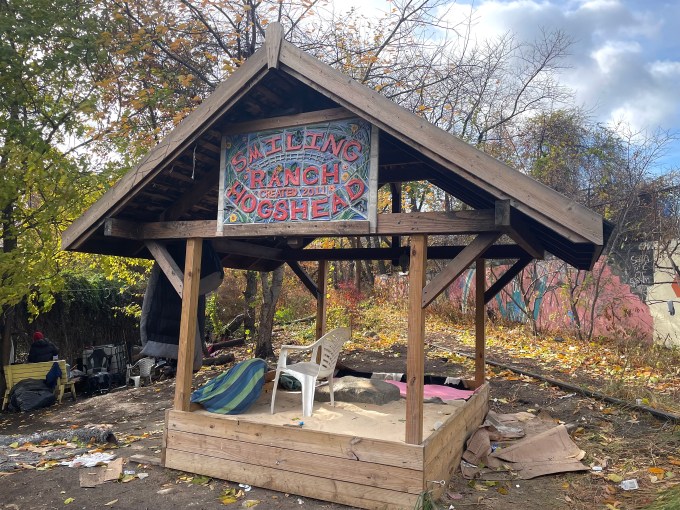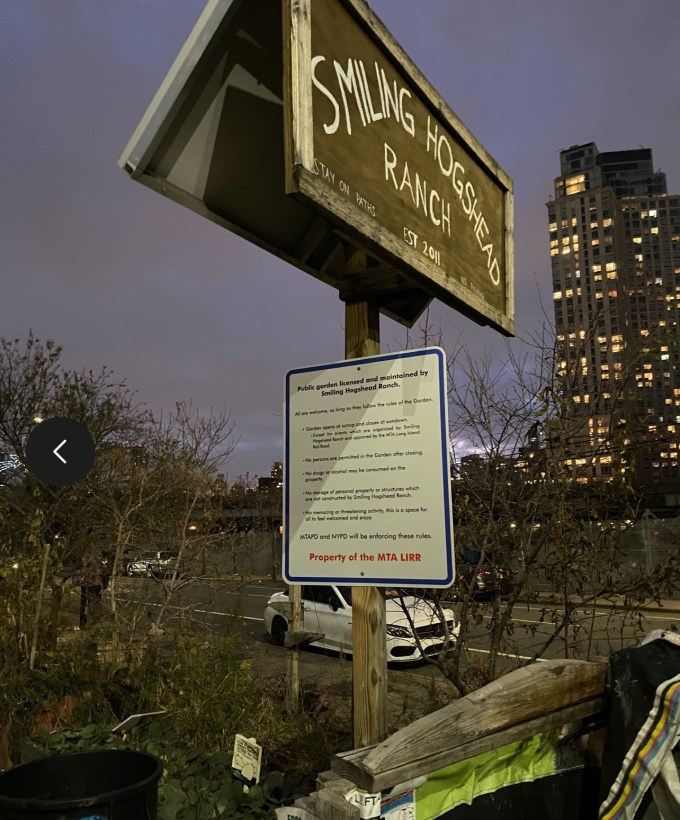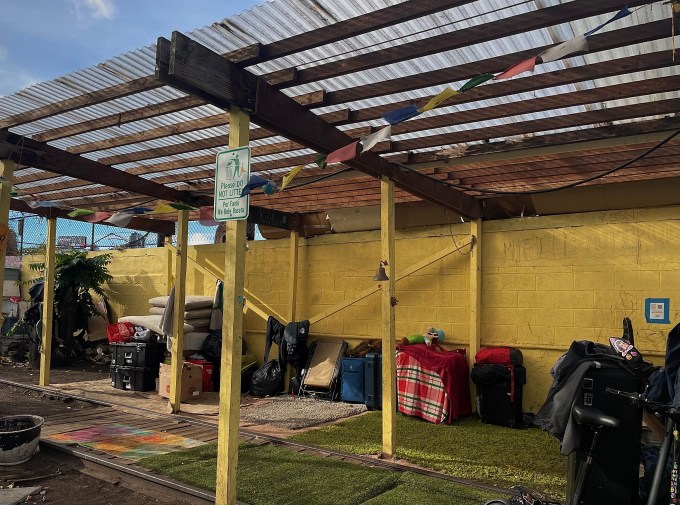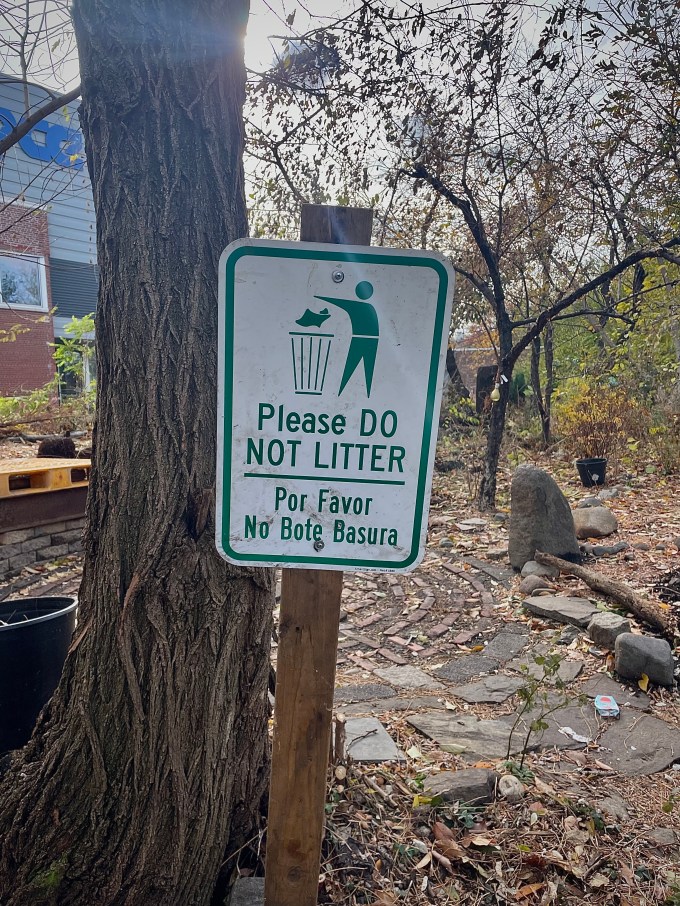
Photo SHR
Dec. 6, 2024 By Niamh McAuliffe
Smiling Hogshead Ranch, a community garden unlike most in New York City, is facing eviction after more than a decade of welcoming locals without a waitlist or fence.
Located at 25-30 Skillman Ave. in Long Island City, the garden offers an open space for residents to join at any time. However, its future is now uncertain after the Metropolitan Transportation Authority issued an eviction notice last month.
Garden members said they’ve been kept in the dark about the official reason behind the decision.

Photo SHR
“There’s no citation of what the reason is,” said Jennifer Plewka, who has been on the garden board for 11 years.
That said, some garden members think the increase of asylum seekers in the nearby Austell Place shelter, many of whom hang out and sleep in the garden after dark, is one cause.
The loitering inside the garden started when Mayor Eric Adams began enforcing 30- and 60-day shelter limits in May 2024 and the garden became a de facto home for people who were forced
out, members said.
Some of the migrants use a sandbox and the garden’s roofed kitchen to sleep. They have also
recently built their own kitchen where they cook for themselves, garden members said.

Photo SHR
At any given time, there are about 30 people in the garden, according to Raido Oja, a garden
board member. Since there has been such high foot traffic in the garden on a daily basis,
resources such as the porta potty have been overused, forcing some of the people to use the
back of the garden as a toilet.
“There’s a lot of pooping that happens back here,” said Plewka. The impact on the local residents who enjoy growing vegetables has been profound, said Oja.
“The garden is suffering right now. Membership is suffering right now,” said Oja, who estimates
Hogshead has lost about half its membership within the last year.
“It’s not even because of the garbage. It’s not because of our beds getting trampled. It’s literally
because people don’t want to come here anymore for whatever reasons. Mostly, they don’t feel
safe, and that’s the biggest problem,” he said.

Photo SHR
Board members and community members began to raise alarms about the changes in the garden in the spring, said Oja. They submitted numerous 311 reports and also contacted the MTA, he said. Police would come by but rarely got out of their cars, according to Oja. But when they entered the garden, they did nothing.
“They say encampments found refer to homeless services. That’s where it died,” said Oja.
The MTA didn’t initially respond to the garden’s requests for help, board members said. But then on May 8, MTA police showed up with a skid-steer loader and tore down some of the structures that had sprung up in the garden. It also took down a stage the garden had constructed.
However, the action didn’t do much to improve the situation, according to Oja and Plewka.
The MTA resurfaced in October for an inspection, and by early November, an eviction notice was posted in several places around the garden, members said.
Since then, the MTA has been meeting with board members of the garden as well as some staffers from Queens elected officials from the offices of Council Member Julie Won, Queens Borough President Donovan Richards, U.S. Rep. Nydia Velázquez and Senator Michael Gianaris has extended the deadline to Dec. 31 and will rescind the eviction altogether once the garden puts up more signage to deter overnight guests.
The garden has placed signs at each of its four entrances listing rules like no smoking or fires, no storage of personal property or structures and no persons are permitted in the garden after
closing.
Plewka doesn’t think the signs will do the trick.
“Nobody’s going to follow the signs,” Plewka said. The garden already has signs posted against littering or smoking. But that hasn’t stopped it from happening, Oja said.
“The minimum that we are looking for is just for MTA police to actually start enforcing what they expect us to enforce. That’s the bare minimum,” he said.
The MTA declined to respond to questions about the eviction.
Smiling Hogshead Ranch wants to remain open to everyone, which is part of its core mission, said Plewka. But helping those who have nowhere else to go is beyond garden members’
capabilities, she said.
“We’re really good at growing food and organizing people. I don’t know how good we are at a social service agency,” said Plewka.
